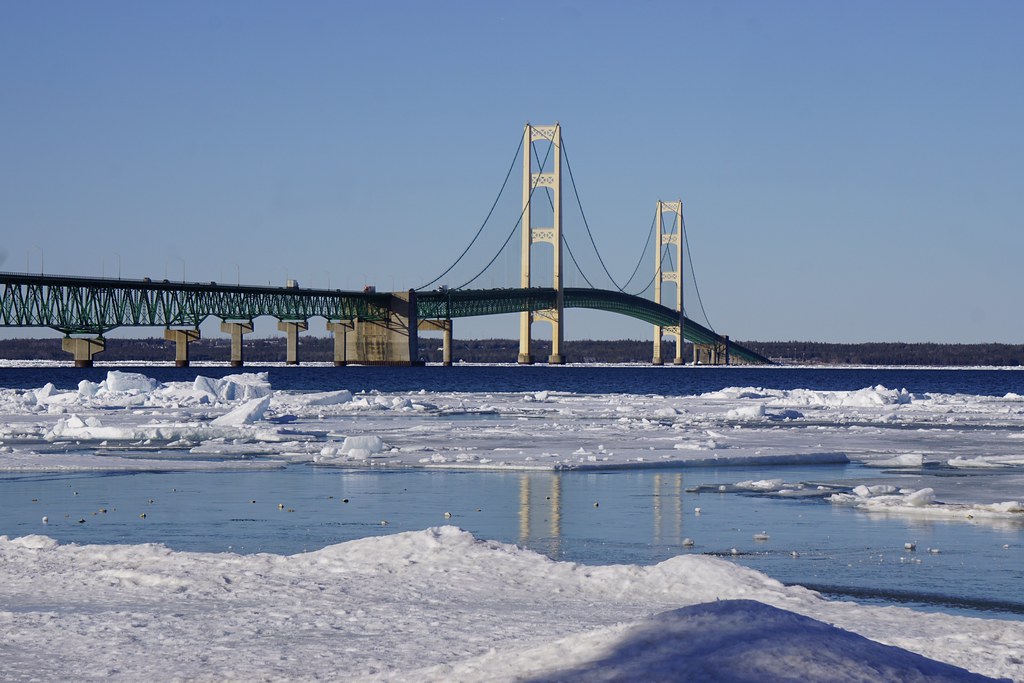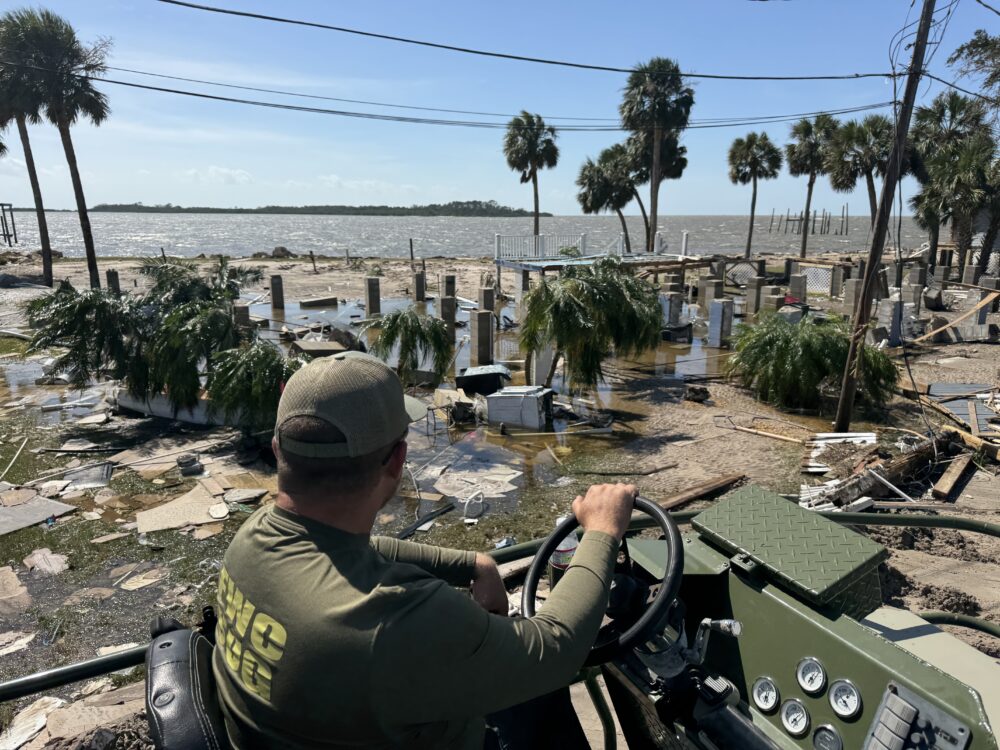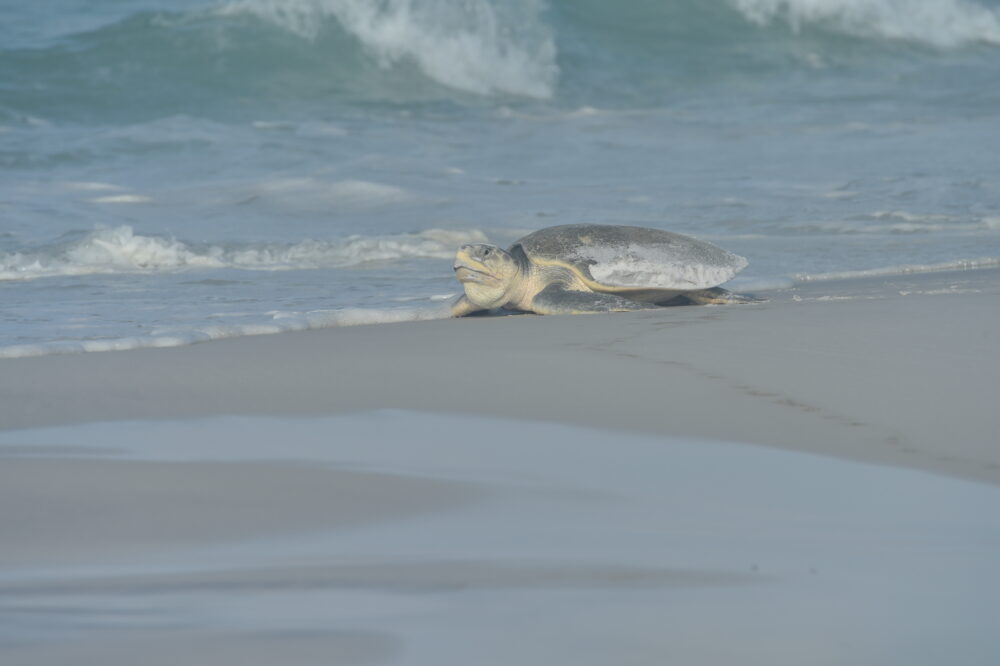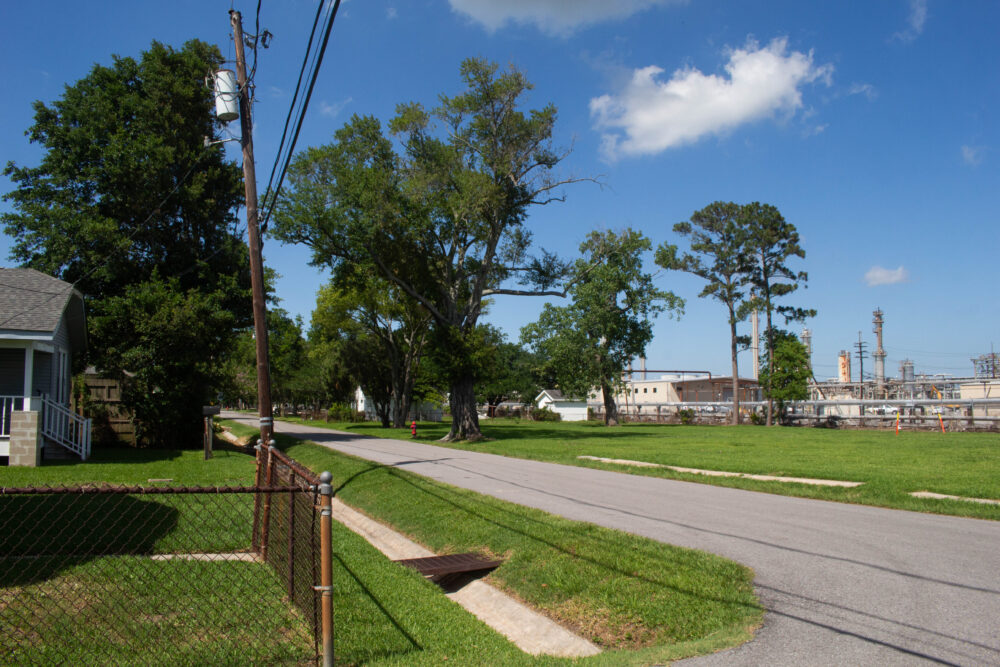We have much more to do and your continued support is needed now more than ever.
Line 5 Pipeline Threatens Freshwater for Millions
NWF's Beth Wallace says the Line 5 pipeline poses a massive risk

The 4.5-mile segment of Enbridge Energy’s Line 5 pipeline beneath the Straits of Mackinac has ignited a firestorm of controversy, lawsuits, and grave concerns over its potential threat to the Great Lakes. This 70-year-old pipeline, transporting millions of gallons of oil daily, has raised alarm bells, particularly in the wake of the 2010 Line 6B rupture in Michigan.
National Wildlife Federation’s Great Lakes freshwater campaigns manager, Beth Wallace, spoke to the investigative reporters of this piece, describing her experience during the Kalamazoo River spill and to explain why Line 5 must shut down immediately.
“Line 5 became so much more alarming when we learned for four miles that the pipeline is exposed and open for four miles in the Straits of Mackinac in Lake Michigan and Huron and poses a massive spill risk,” Wallace said. “It could be up to 700 miles of shoreline that would be affected from the spill. It would be millions of people potentially losing their homes and their livelihood and having to leave. It would be thousands of businesses leaving the area forever, not to mention the wildlife that would potentially never recover.”
-Beth Wallace, NWF Great Lakes Freshwater Campaigns Manager
Line 5 Must Be Shut Down
Experts warn of catastrophic consequences should Line 5 fail, potentially affecting thousands of homes, businesses, and wildlife. Tribes, such as the Bad River Band in Wisconsin and more, have called for its decommission, while legal battles continue, leaving the future of Line 5 uncertain in a region where the Great Lakes’ abundant freshwater resources are at stake.
Independent industry experts and Enbridge’s own experts have shown that Line 5 can shut down with imperceptible economic impact. Given that the Great Lakes collectively account for 20% of the world’s surface freshwater, any disaster in this region would have far-reaching national and even global implications, affecting not only local communities but also the vital freshwater resources shared by millions.





















